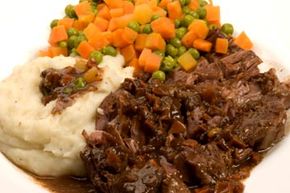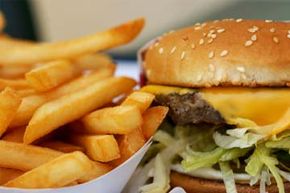Imagine how boring life would be if humans only ate for utility. Goodbye, buttery lobster tails with herb-encrusted fingerling potatoes. Arrivederci, savory gnocchi and lamb ragu. Sayonara, bento boxes of wasabi, sushi rolls and pickled vegetables. Nutritionally, we don't need any extravagant cuisine to sustain our bodies; as long as we get enough water and nutrients, we ought to keep on ticking. But the fact is, people derive pleasure from the foods they love.
High-fat and sugary foods stimulate the limbic reward system in the brain, which is why we often crave less-healthy snacks and meals when we're distressed. Since we only crave foods that we've eaten before, comfort foods vary from person to person. Often, our favorite meals from childhood top the list of our favorite comfort foods because we form unconscious, sensory relationships with food -- even during fetal development [source: McGowan]. And with Americans' collective stress level elevated because of the economic recession, it's little wonder that many people are returning to certain staples that mama used to make.
Advertisement
While thrifty dishes like tuna casserole and pot roast might have a soothing effect on recession-weary consumers, most people are more concerned with relieving their barren wallets. Comfort foods and home cooking, by and large, are less expensive than take-out and restaurant dining. The U.S. Department of Agriculture (USDA) estimates that a family of four can buy nutritious groceries for around $170 per week [source: USDA].
Recent national food trends provide a snapshot of this budget-related and stress-induced comfort eating. In early 2009, food experts predicted Americans' return to comfort foods, and by spring, grocery store sales figures confirmed the forecast. Basic bread is projected to hit a 7.2 percent sales increase through the end of 2009, and side dishes -- i.e., canned vegetables, instant macaroni and cheese -- should see a 5.2 percent boost [source: Lee].
Companies have jumped on the home-cooking bandwagon as well, with brands like Betty Crocker, Kraft and Campbell's spending more dollars on advertising. For instance, with more employees toting lunches to work, Hellman's Mayonnaise funneled an additional $24.6 million into its ad budget during the first half of 2009 [source: Elliott]. But just because there's been a shift toward buying basic grocery items and staying out of sit-down restaurants doesn't mean Americans' eating habits are improving in the recession.
Advertisement



